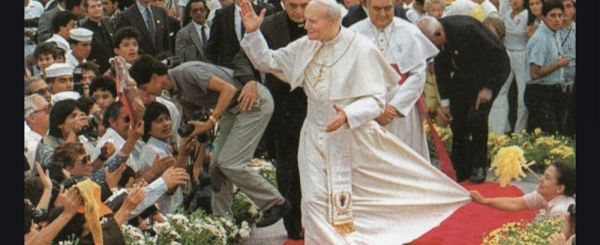2. They come from afar, one could almost define them as endemic, the problems and challenges that present themselves to the pastoral activity of the Brazilian Northeast, posing the disquieting question to the pastors of the Church: how to evangelise such immense and poor populations and share the anguish born of their poverty, which in real life has very concrete aspects, in which we should recognise the suffering features of Christ? How can we build the Church, with its distinguishing characteristic of "signalling and safeguarding the transcendent dimension of the human person" and promoting his integral dignity, with these "living stones", when their poverty is, many times, not only a casual consequence of ineluctable situations of natural factors, but also a product of certain economic, social and political structures?
3. One cannot fail to recall with gratitude on this occasion, at least globally, the pleiads of self-sacrificing, virtuous and devoted missionaries and pastors who have preceded you and who must be considered as the founders of the Church of God (cf. Eph 2:20) in your present-day dioceses, or, to use the patristic expression, "have there begotten" Churches, and not without suffering. In their time, they must surely have wondered what God's plan was for each man's vocation in the building of society, to make it ever more human, just and fraternal, and how the priority of priorities in evangelisation could be implemented: to seek first and foremost the kingdom of God and its justice.
5. Peoples and human groups, in general, in order to progress, gradually and effectively, and not only satisfy immediate vital needs, need solidarity, to achieve the indispensable and permanent transformation of the structures of economic life. But it will not be easy to proceed along the steep path of this transformation, unless there is a true conversion of minds, wills and hearts, which will do away with the confusion of freedom with the instinct of individual and collective interest, or even with the instinct of struggle and predominance, whatever the ideological colours with which they are clothed (cf. John Paul II, Redemptor Hominis, 16).
[Pope John Paul II, Address to the Brazilian Bishops 16 September 1985]












